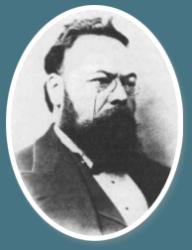CONCLUSION.
Having now, as I submit, practically demonstrated the feasibility of a radical cure of fistula by medicines, I claim for this method of cure in the aggregate superiority over all other,- superior in the following particulars :-
1. It is radical, in that the remedies can be chosen so that the internal causes of the fistular process are attacked and overcome.
2. It is painless.
3. It does not interfere with the mode of life or occupation of the sufferers.
4. There are no ill after-effects to the nervous system from shock, such as may, and often do follow operations.
5. It is safe in that the chest and other affections are ameliorated pari passu with the general cure of the constitutional crisis.
6. It is effective in those cases in which surgery fails “because the fistula will not heal.”
7. It is philosophic, being consonant with the true wisdom of self-preservation.
8. It is scientific, the remedies being chosen in accordance with the data of pharmacology derived from positive experiments on the healthy.
” Now! I can go no further; well or ill, it is done.


